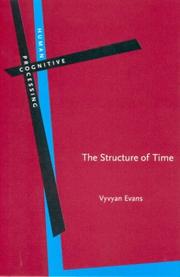| Listing 1 - 4 of 4 |
Sort by
|
Book
ISBN: 0729408345 9780729408349 Year: 2004 Volume: 2004:01 Publisher: Oxford Voltaire Foundation
Abstract | Keywords | Export | Availability | Bookmark
 Loading...
Loading...Choose an application
- Reference Manager
- EndNote
- RefWorks (Direct export to RefWorks)
Sociology of literature --- French literature --- anno 1700-1799 --- Espace et temps dans la littérature --- Femininity in literature --- Féminité dans la littérature --- Ruimte en tijd in de literatuur --- Space and time as a theme in literature --- Space and time in literature --- Vrouwelijkheid in de literatuur --- Women and literature --- Women in literature --- Femmes et littérature --- Littérature française --- Femmes dans la littérature --- History and criticism. --- History and criticism --- Histoire et critique --- History --- Femmes et littérature --- Littérature française --- Femmes dans la littérature --- French fiction --- 18th century --- Women in literature - France - History --- French literature - 18th century - History and criticism
Book
ISBN: 2745309528 9782745309525 Year: 2004 Volume: 78 Publisher: Paris Champion
Abstract | Keywords | Export | Availability | Bookmark
 Loading...
Loading...Choose an application
- Reference Manager
- EndNote
- RefWorks (Direct export to RefWorks)
Zola, Emile --- Espace et temps dans la littérature --- Ruimte en tijd in de literatuur --- Space and time as a theme in literature --- Space and time in literature --- Zola, Emile, --- 840 "18" ZOLA, EMILE --- Franse literatuur--19e eeuw. Periode 1800-1899--ZOLA, EMILE --- 840 "18" ZOLA, EMILE Franse literatuur--19e eeuw. Periode 1800-1899--ZOLA, EMILE --- Zola, Émile, --- Zola, Émile - 1840-1902 - Rougon-Macquart --- Zola, Émile - 1840-1902 --- Zola, Émile (1840-1902) --- Zola, Émile (1840-1902). Les Rougon-Macquart --- Espace --- Critique et interprétation --- Thèmes, motifs --- Dans la littérature

ISSN: 13876724 ISBN: 9027223645 158811466X 902722367X 9789027223678 9786612159961 1282159968 9027293783 9781588114662 9789027293787 9789027223647 Year: 2004 Volume: 12 Publisher: Amsterdam Benjamins
Abstract | Keywords | Export | Availability | Bookmark
 Loading...
Loading...Choose an application
- Reference Manager
- EndNote
- RefWorks (Direct export to RefWorks)
One of the most enigmatic aspects of experience concerns time. Since pre-Socratic times scholars have speculated about the nature of time, asking questions such as: What is time? Where does it come from? Where does it go? The central proposal of The Structure of Time is that time, at base, constitutes a phenomenologically real experience. Drawing on findings in psychology, neuroscience, and utilising the perspective of cognitive linguistics, this work argues that our experience of time may ultimately derive from perceptual processes, which in turn enable us to perceive events. As such, temporal experience is a pre-requisite for abilities such as event perception and comparison, rather than an abstraction based on such phenomena. The book represents an examination of the nature of temporal cognition, with two foci: (i) an investigation into (pre-conceptual) temporal experience, and (ii) an analysis of temporal structure at the conceptual level (which derives from temporal experience).
Cognition. --- Space and time in language. --- Espace et temps dans la langue --- Expression de l'espace et du temps (Linguistique) --- Langage -- Expression de l'espace et du temps --- Ruimte en tijd in de taal --- Temps et espace dans le langage --- #KVHB:Linguistiek --- 801.56 --- 801.56 Syntaxis. Semantiek --- Syntaxis. Semantiek --- Cognition --- Semantics --- Space and time in language --- Language and languages --- Formal semantics --- Semasiology --- Semiology (Semantics) --- Comparative linguistics --- Information theory --- Lexicology --- Meaning (Psychology) --- Psychology --- Lexicology. Semantics --- Psycholinguistics --- LANGUAGE ARTS & DISCIPLINES --- Linguistics / Semantics --- Languages & Literatures --- Philology & Linguistics --- Semantics.
Book
ISBN: 2745309625 9782745309624 Year: 2004 Volume: 69 Publisher: Paris : Editions Honoré Champion,
Abstract | Keywords | Export | Availability | Bookmark
 Loading...
Loading...Choose an application
- Reference Manager
- EndNote
- RefWorks (Direct export to RefWorks)
Cet ouvrage reprend l'analyse des neuf romans qualifiés jusqu'à présent de " réalistes " et définit une esthétique s'épanouissant de la fin du XIIe siècle jusqu'au début du XIVe. À cette période en effet, la réalité concrète bénéficie d'un statut nouveau et exerce un attrait inhabituel. Nommée " tournant de 1200 " par les historiens, une conjoncture historique et économique favorab le, sous tendue par un contexte philosophique très particulier marqué par la redécouverte des textes d'Aristote et le recul du néoplatonisme chrétien, a donné naissance à ce mouvement littéraire, qui s'apparente sur bien des points à l'art gothique.
Espace et temps dans la littérature --- Realiteit in de literatuur --- Reality in literature --- Ruimte en tijd in de literatuur --- Réalité dans la littérature --- Space and time as a theme in literature --- Space and time in literature --- Werkelijkheid in de literatuur --- Romances --- French literature --- Fiction, Medieval --- Roman courtois --- Littérature française --- Roman médiéval --- History and criticism. --- Histoire et critique --- Jean Renart, --- Godefroy, Jean-Baptiste-Achille, --- Criticism and interpretation --- French fiction --- History and criticism --- Gerbert de Montreuil, --- Beaumanoir, Philippe de Remi, --- Littérature française --- Roman médiéval --- Jean Renart --- To 1500 --- French literature - To 1500 - History and criticism. --- French fiction - To 1500 - History and criticism --- Jean Renart, - active 12th century-13th century - Criticism and interpretation --- Gerbert de Montreuil, - 13th century. - Le roman de la violette --- Beaumanoir, Philippe de Remi, - sire de, - ca. 1250-1296 - Criticism and interpretation --- Jean Renart, - active 12th century-13th century --- Beaumanoir, Philippe de Remi, - sire de, - ca. 1250-1296
| Listing 1 - 4 of 4 |
Sort by
|

 Search
Search Feedback
Feedback About UniCat
About UniCat  Help
Help News
News